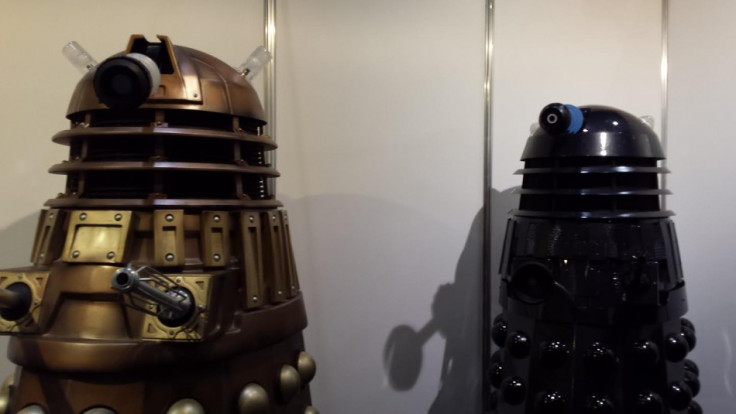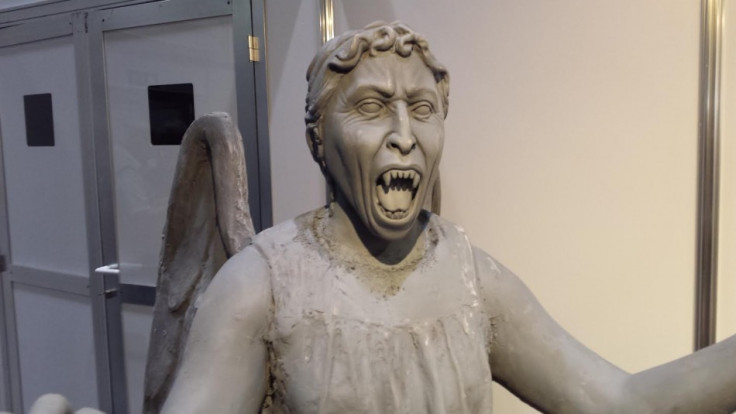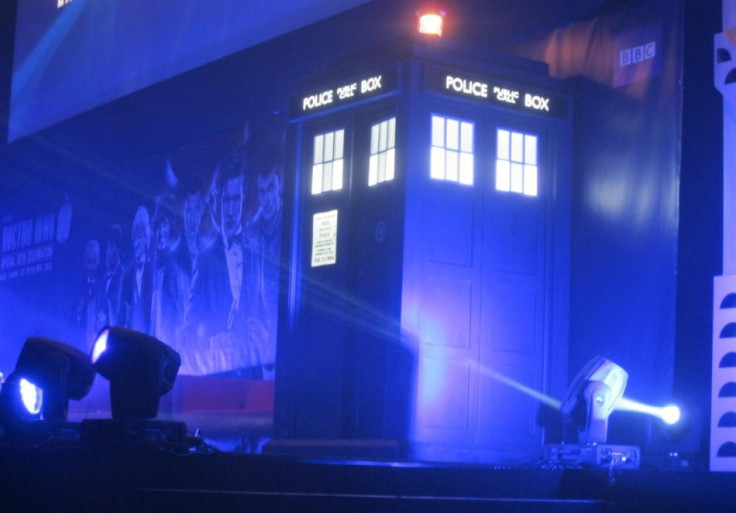Doctor Who 50th Anniversary Review: Why I Love Doctor Who

While watching 'The Day of the Doctor', the 50<sup>th anniversary episode of Doctor Who, my wife confided in me that she didn't find the Daleks scary, and that she thought they looked silly.
Of course my first instinct was to google 'affordable divorce lawyers', but I then got to thinking why it was that I, and millions of others, find the trundling over-sized salt shakers so frightening. The harsh electronic barks of EXTERMINATE THE DOCTOR are certainly unsettling, but I think it more has to do with the show's 50-year history.
Shaping My Childhood

Doctor Who is the longest running science fiction show in the world, first airing on 23 November 1963.
There have been significant gaps between series (the biggest being the 9 years between the mostly forgettable TV movie that was Paul McGann's only filmed outing as the Doctor, and its triumphant return in 2005 with Christopher Eccleston), but the majority of adults in the UK will have grown up in a time when stomping Cybermen, whirring sonic screwdrivers, and the wheezing groan of a dematerialising TARDIS would have been regularly broadcast into the nation's living rooms.
My mother informs me that my brother and I would literally hide behind the sofa (if I recall correctly we had to push it out about a foot from the wall to provide ample cowering space) whenever Sylvester McCoy's Seventh Doctor would run into the Daleks, a manoeuvre so commonplace it has become inextricably linked with the show.
Looking back objectively on those earlier episodes with adult eyes, the Daleks seem no more threatening than a runaway shopping trolley in a supermarket carpark, but to my 10-year old eyes they were terrifying.
They were slow and ungainly, but they never stopped, couldn't be destroyed, and wanted nothing more than to kill anything that wasn't Dalek. The look and sound of them was so firmly imprinted on my mind that when one appeared for the first time in the rebooted series, my reaction to it was primal.
This was a half-remembered thing from my childhood that scared me then, and scares me now.
The Daleks' frequent outings in subsequent series has diluted the impact somewhat (hearing one rasp WOULD YOU LIKE SOME TEA? In 'Victory of the Daleks' probably most so), but thanks to its incredibly long run the show can continually reintroduce semi-forgotten elements that feel all the more vivid because they have such a history in the show.
The Longevity of Doctor Who

If it just rehashed old monsters and ideas then the renewed show would likely have died along with Eccleston's incarnation, but every series has boasted some incredibly well written episodes.
The unlimited scope of Doctor Who, having the entirety of time and space to play with (a whole continuum, if you will) means that it can do an unparalleled range of 'Monster of the Week' episodes, and has birthed several new and inventive foes for the Doctor such as the Weeping Angels and the Silence.
But for me what elevates Doctor Who above other equally well-written shows is how it weaves into almost every episode an overarching story arc that establishes an epic mythology for the character.
Earlier Doctors occasionally hinted at a dark and troubled personality, but were mostly played as carefree and clowning. The post-reboot Doctors were damaged however, and their cracks showed much more frequently.
Eccleston's Nine was wracked with guilt at the genocide he had committed to end the Time War.
David Tennant's Ten showed what could happen to the Doctor when he was without the moderating influence of a companion, nearly exterminating a brood of Racnoss young in fury in 'The Runaway Bride', and declaring himself the Timelord Victorious and above the laws of his own people in 'The Waters of Mars'.
In 'Amy's Choice', Matt Smith's eleventh Doctor deduces the identity of the mysterious figure tormenting him, saying to him 'there's only one person in the Universe who hates me as much as you'. The figure later turns out to be the manifestation of the Doctor's own subconscious.
A Modern Mythology

Epithets like 'The Oncoming Storm' and 'The Lonely God' hint at an epic mythology surrounding the Doctor in the show's universe. It's this mythology that most appeals to me, and pulls me towards Doctor Who rather than something like Star Trek, probably the nearest sci-fi equivalent.
Like the TARDIS, the Enterprise has had many different faces at the helm, and travels through space (and occasionally time) to meet strange aliens and visit bizarre planets, but Kirk et al are still constrained by laws and limits that Doctor Who gleefully oversteps, limited only by the imagination (and the BBC's budget, admittedly a much tighter leash).
The problem with epic and apocalyptic storylines is that it's hard to top the previous series' events.
Series finales have seen the Doctor preventing schemes to destroy Earth, then humanity, then reality, and eventually time itself by the end of David Tennant's tenure.
Matt Smith's story arc centred around the answer to the question "Doctor Who?", and tangled itself in knots regarding universes ending and being reborn, getting married to someone travelling in the opposite direction in time, and entering his own timeline (at the site of his own tomb) and meeting other Doctors from his past, to the extent that the only way to fully visualise the plot would involve a massive corkboard, coloured string and lots of pins.
The show was in danger of collapsing under the weight of its own complexity and forming a black hole - something not helped by the aneurism-inducing anniversary episode at the weekend.
I found I enjoyed it far more after I decided to stop worrying about why Doctors couldn't remember the actions of their previous selves and just go with it.
(As an aside, my biggest disappointment in the episode, which I otherwise loved, was the small scale of the Time War. Previously, when the Time War had been referred to, it was rendered in broad strokes as a vast, Universe-encompassing conflict that by the end had descended into destruction on an unimaginable scale, unleashing such horrors as the Nightmare Child, the Horde of Travesties and the Could've Been King with his army of Meanwhiles and Neverweres. Which in the show turned out to be two armies going pew-pew with lasers.)
Luckily, the very things that can snarl up the timeline can also, with a little suspension of disbelief (not thinking too much about the logic also helps), wipe the slate relatively clean to begin afresh. The show's upcoming regeneration in this Christmas' special promises to be the biggest change in direction since the show restarted in 2005.
The Future of The Doctor

The events of 'The Day of the Doctor' give a new goal for the Doctor - a hunt for his home planet of Gallifrey, previously believed to be destroyed by John Hurt's 'War Doctor', but revealed to be still extant, frozen somewhere in time.
The simple story of a man trying to find his home should be a welcome contrast to the wandering adventurer he has previously been.
Along with the fantastic Peter Capaldi manning the controls of the TARDIS, the new series promises to make Doctor Who a show worthy of another 50 years thrilling and terrifying the nations' children (and at least one grownup).
© Copyright IBTimes 2025. All rights reserved.





















